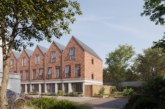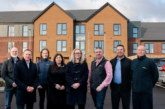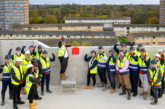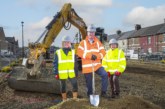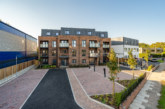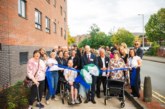Stuart Gibbons, Regional Managing Director of Lovell London and Southern, discusses the impact of COVID-19 on the housebuilding sector and how being agile as a business has helped the partnership housing provider tackle the challenges posed by the pandemic.
The coronavirus pandemic had an obvious and immediate impact on the housebuilding sector during the lockdown by halting construction, although from a Lovell perspective, that was chiefly due to the lack of supply chain availability. Sales were also impacted during that period due to the temporary closure of our marketing suites.
Since re-opening the sales offices in June, reservations have been better than previously expected, in part due to pent up demand as well as government intervention. The stamp duty policy changes, albeit temporary, have had a positive influence on purchaser sentiment and thereby sales rates. Mortgage and lending rates are still at a low level and where customers are able to save for a deposit, people are discovering now is the time to borrow to buy a home.
We’ve adapted our working practices throughout this period of working through COVID. Undoubtedly at the start, our production was lighter than it had been before, but we’ve adapted quickly.
Lovell, as a business, has found low-rise housing sites have returned to very similar output levels that were there pre-COVID. But on more dense schemes in major cities such as London, it’s been a bit more difficult to go back to full capacity due to tighter logistics and people movements up and down tall buildings. That said, working with our supply chain, we’ve looked at different methods of working and programming and as a result, we are a long way down the road to being back to normal.
In common with every housebuilder, COVID has had an impact on Lovell’s performance this year as indicated by Morgan Sindall’s (Lovell’s parent group) half year results. Positively, the Group is financially strong as was shown by the Morgan Sindall announcement that all furlough payments received will be refunded to the Government. That speaks for the strength of the Group overall.
Once the virus is under control, experts are predicting a fairly sharp economic shock with more redundancies and a potential recession ahead. What that means next year is something we can’t totally predict, but the underlying fundamentals of why Lovell has been in business almost 50 years in the housing market still remains the same. There’s a need to build quality, new homes and regenerate parts of the country to build strong, sustainable communities.
There’s still a huge housing supply side deficit. We consistently hear the same narrative on the subject, right back to the Barker Report in 2004. That deficit impacts by way of increasing underlying house prices as well as affecting affordability generally.
Economic challenges to our peers in the market aren’t necessarily helpful to us or the sector overall because that just makes the supply chain issues more acute. We need a strong housebuilding sector and a strong affordable programme to move forward and continue to build in the numbers we need in the UK.
Facing up to COVID-19 — how Lovell adapted to the ‘new norm’
At the end of March, our sites ceased operations in order for the business to ascertain safe ways of working during the pandemic. After detailed discussions, analysing government advice and referring to the Construction Leadership Council (CLC) guidance documents, a dedicated section on the Lovell intranet, Insite, was set up relating to COVID-19 where all staff could gain access to information relevant to operating in a pandemic environment.
A Project Remobilisation and Operating Procedures (PROP) document was produced which identified the various construction and management activities being undertaken and how we could address these ensuring compliance with the COVID-19 guidance. We are continuously amending our approach and advice on our projects based on the latest Government and CLC guidelines and we keep this under review for all of our site operations.
The PROP describes how we mobilise the sites to ensure we are compliant to COVID-19 security guidelines and what procedures we need to adapt to ensure social distancing and safe working practices are implemented. These include reviewing people’s travel arrangements, extended working hours, enhanced welfare facilities and cleaning regimes, adapted break rotas, reprogramming of work activities and one-way systems around the sites.
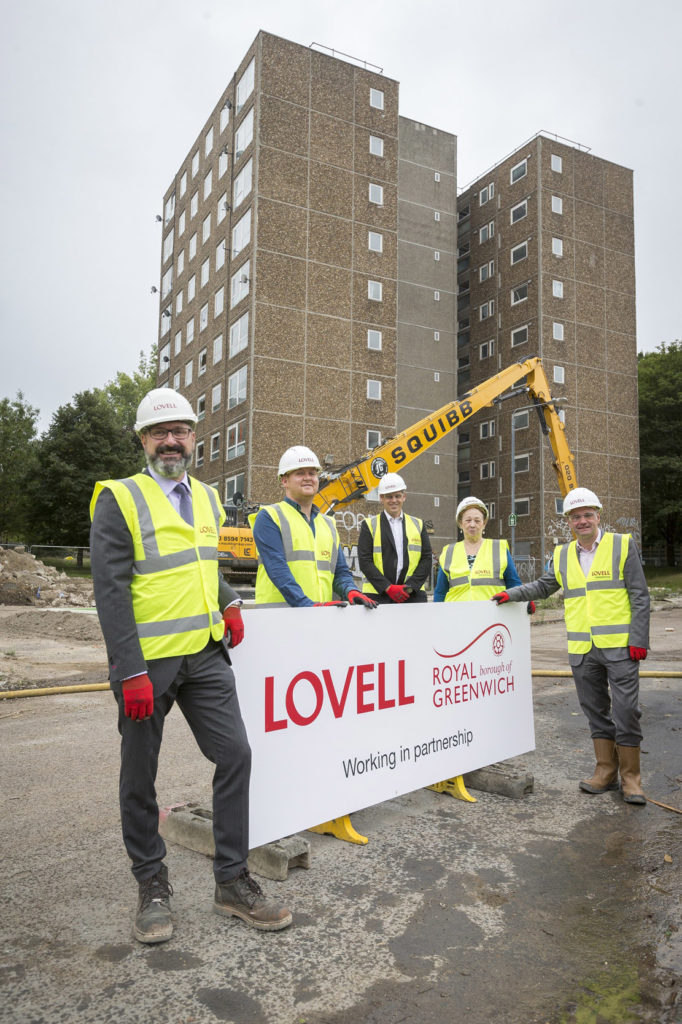
Partnership housing business for 50 years
Lovell has been a partnership housing and regeneration business for nearly 50 years. As one of the vanguards of devising and delivering an alternative housing delivery mechanism, in 2021 the company celebrates its major milestone at the forefront of building affordable housing which dates back to 1971 and a housing development in Swindon.
Our model gives us the flexibility to move with the market as it ebbs and flows, be it as a developer, housing development partner or a pure construction delivery provider.
We assemble land, we buy land ourselves, so we act as a developer and therefore, build and sell homes in the private market. We enter joint ventures and partnership arrangements with local authorities and housing associations, sharing risk and cash output to make sure a range of tenures are built on each scheme. We also contract to our registered provider partners and local authorities, leveraging our construction expertise to help fulfil their programmes.
There are environmental factors which effect the model over the economic cycle. The state of the housing market in general is a consistent factor, but because our business operates across multiple tenures, it can be counter cyclical. When the housing market drops off and there’s less open market housing opportunities, inevitably there’s more local authority and housing association contracting activity that can bridge the gap.
Regeneration
In recent months, Lovell London has started two major regeneration schemes. The first is a £350m scheme in Woolwich. The six-year project will transform two former 1960s council estates into a vibrant mixed community of over 900 one-, two-, three- and four-bedroom homes comprising a mix of houses and apartment blocks.
It’s part of a larger regeneration programme in Woolwich. Royal Borough of Greenwich appointed Lovell in 2013 as its development partner for the One Woolwich programme, which will see Lovell redevelop three former council estates in the area. Over 1,500 new homes will be built over a 15-year regeneration programme, driving job creation, apprenticeships and economic growth over the period of it’s construction and, probably most importantly, the years beyond.
The second scheme is a £45m regeneration scheme at High View in Hatfield to deliver 146 quality new homes, a retail centre, community facilities and amenities. Working in partnership with Welwyn Hatfield Borough Council, Lovell will deliver a range of housing from one-bedroom apartments to three-bedroom houses over the next four years.
With the immediate future remaining uncertain, we continue to prepare for a variety of scenarios. As a business, being agile and efficient in these times is vital, and the flexibility of a wide offering of multi-tenured housing allows the Lovell approach to thrive regardless of the economic environment.
So too is the capability and willingness to partner with housing associations and other homes providers, as well as supporting local authorities to carry out their own housing development. Housing partnerships offer a strong financial model in these times, with more than one organisation sharing the risk on each project, improving housing supply and protecting respective balance sheets.
Our objective is to regenerate places and make them better by building affordable, quality family housing across all tenures. That’s very much the foundation of our business model and our strategy for the foreseeable future.


